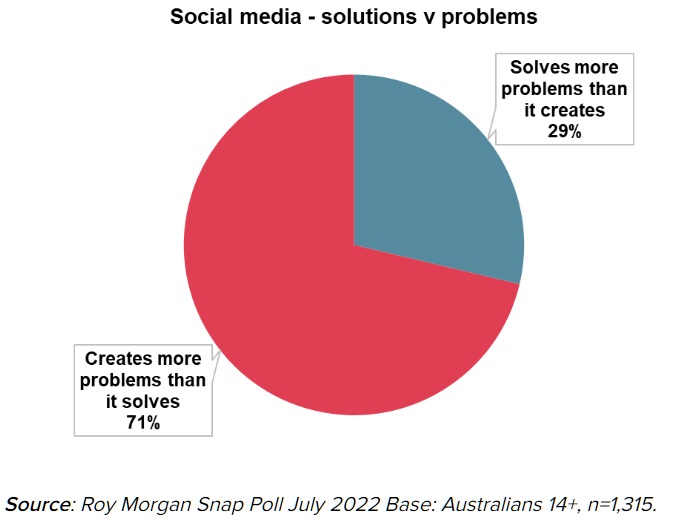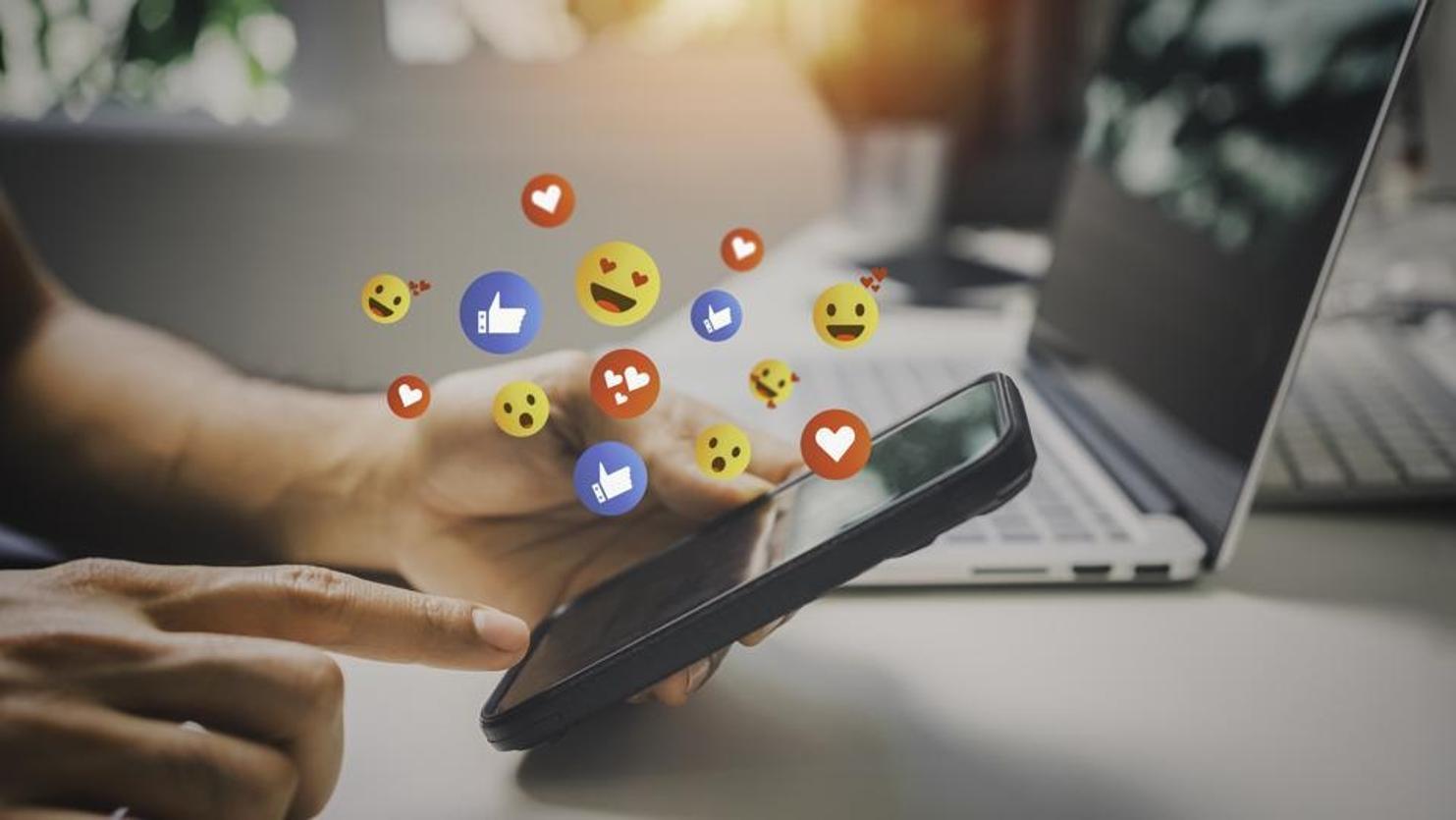Key themes underlying Australia’s mistrust of social media include the lack of regulation, the negative effect on self-esteem, targeting of content towards children, and the addictive nature of the platforms.
The Roy Morgan Risk Monitor contains hundreds of thousands of verbatim comments from more than 130,000 Australians about why they trust or distrust brands they nominate top-of-mind.
Reasons given for distrust of social media companies are often highly emotive. Some examples include:
- “Not doing enough to protect kids and young people.” (Instagram)
- “Absolutely collecting information, giving kids horrible ideas and self-esteem.” (TikTok)
- “Privacy invasion and making addictive technology aimed at kids.” (Meta).
- “I disagree with their ethical decisions when producing services that children consume.” (Facebook)
- “It does not filter its users. Allows so much to fall through the gaps. Bad for young children. Allows crazies to post.” (Facebook)
- “I don’t think they are open and honest about what they do with data. I think they use techniques to get people addicted to their platform. (Facebook)
- “I don’t believe they do enough to prevent hate speech or bullying or the effect they have on children and teens, especially when it comes to things like body image issues.” (Facebook)
- “Facebook like so many social media platforms has become a cowardly breeding ground for trolls, hate focussed groups, bullies and destruction of businesses and individual people and children.
- “Many who seem to use these platforms really do not understand the dangers of the huge risks to their privacy, stolen identities and overall safety.” (Facebook)
- “Not doing enough to protect children from unwanted or dangerous content.” (Meta)
- “Instagram have been a part of some safety scandals. I do not believe they do what they can to protect children and women from online predators.” (Instagram)
- “It’s all fake and younger and younger children are becoming addicted to it.” (TikTok)
Roy Morgan research in 2022 showed that an overwhelming majority of Australians believed that social media creates more problems that it solves.
A snap poll conducted by Roy Morgan in July 2022 showed that less than three in ten (29%) Australians agreed that ‘social media solves more problems than it creates.’
“These results were in contrast to public opinion on the internet in general, which showed that almost two thirds (64%) of Australians agreed that ‘the internet solves more problems than it creates.’

Roy Morgan CEO Michele Levine commented on these findings:
“These results show that the poor behaviour and negative influence of the social media giants has long been an issue of great concern for many Australians,” Levine said
“Since we began measuring trust and distrust way back in 2018, social media has consistently been one of the most distrusted industries in the entire economy,”
“The reasons Australians give for distrusting social media brands are some of the most emotive of any industry – it’s visceral. This indicates a level of distrust that shows no signs of diminishing anytime soon,” said Levine.
“While this shows that Australians are concerned and want action on this issue, it isn’t clear whether they want government regulation, a full ban on social media or greater self-regulation from the social media giants themselves,”
“The government’s proposed ban on children accessing social media, while aiming to lessen the negative influence of social media among young people, is just one of many possible strategies,”
“There is a strong argument for increased education, to ensure that young people are aware of the dangers of social media and can safely navigate these online spaces.” she said.
The Impact of Social Media on Australians: A Closer Look at Connection and Wellbeing
Social media has changed the way Australians connect, consume content, and share information. With e-commerce tools and digital advertising at the forefront, we’ve seen the rise of platforms powered by algorithms that aim to reshape our behaviors and social interactions.
Platforms like Facebook, Instagram, and Twitter are under heavy scrutiny as governments try to tackle issues like misinformation, polarisation, and threats to democracy.
Research continues to highlight the impact of social media on mental health and wellbeing, supporting what many have suspected: its use can lead to negative outcomes, particularly for young people.
Concerns about safety—both online and offline—are also rising, especially as social media is linked to an increase in technology-facilitated abuse, particularly gender-based violence.
Today, children are exposed on social media before they are born, with parents sharing
ultrasound pictures on social media, leading to tech companies starting their collection
and use of children’s data from an early age.
One estimate suggests over 72 million data points are collected about children by technology companies by the time they reach 13







